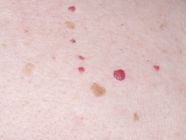There is currently no permanent cure for psoriasis, as it is a chronic skin condition. However, symptoms can be effectively managed. Treatments aim to reduce inflammation, slow the rapid turnover of skin cells, and relieve symptoms such as scaling and itching—ultimately improving the patient’s quality of life.
Topical treatments are often sufficient for mild cases, while moderate to severe cases may require additional therapies such as phototherapy, oral medications, or biologics (1).
Topical Treatments
"The first-line option for treating psoriasis"
Topical treatments such as creams and ointments are commonly prescribed initially—especially for mild psoriasis. These help reduce inflammation, slow down excessive skin cell production, and suppress the overactive immune response (2).
Topical options include:
- Topical corticosteroids
- Topical vitamin D (e.g., Calcipotriol)
- Coal tar
- Certain types of retinoids
- Topical immunosuppressants
The right type is selected based on the site and severity of the lesion and should always be used under medical supervision to reduce symptoms and improve skin health.
In many cases, more than one topical treatment is used, either one in the morning and another in the evening, or a combined formulation once daily—such as Daivobet®, which includes both corticosteroid and calcipotriol 3.
Moisturizing creams and ointments should also be a key part of your daily routine, as they help relieve dryness and itching, soften scales, and enhance the effectiveness of other treatments (3).
Phototherapy
Phototherapy is beneficial for treating moderate to severe psoriasis. While natural sunlight may help reduce skin cell production, controlled artificial UV light is generally preferred for better results. There are two main types: (1)
- Narrowband UVB: The most widely used and safest form, often preferred for its efficacy.
- PUVA (Psoralen + UVA): In this approach, the patient is given psoralen as a pill or cream to make the skin more sensitive to UVA light for deeper penetration.
Although light therapy is effective for many people, it has drawbacks, such as an increased risk of skin cancer (especially with PUVA), the need for frequent sessions (up to 3 times per week for 3 months or longer), and time spent commuting to appointments—so it’s important to discuss these factors with your doctor (4).
Oral Medications
Used for moderate to severe cases, oral medications help suppress the immune system and reduce inflammation. They may be administered as pills or injections, and the most suitable type is determined in consultation with a dermatologist based on your condition and previous treatment responses.
Biologic Injections
Biologic medications are a highly effective treatment option for moderate to severe psoriasis and psoriatic arthritis. They are often used when other treatments are insufficient or not suitable for the patient, as they work by targeting specific components of the immune system responsible for inflammation and psoriasis symptoms.
These medications are administered either through subcutaneous injection or intravenous infusion, and the treatment schedule varies from one medication to another, based on the physician’s diagnosis (3).
Choosing the Right Treatment
To achieve the best outcomes, our dermatology team at Al-Ahli Hospital works closely with each patient to develop a personalized treatment plan aimed at controlling symptoms and reducing flare-ups. Most cases begin with topical options, and other therapies may be added based on response.
Home Remedies
These tips can help ease symptoms and make living with psoriasis more manageable (5):
- Take daily baths with lukewarm water and soap that contains added oils. Avoid harsh scrubbing. You can add oatmeal to the bath and soak for at least 15 minutes to soothe the skin.
- Apply moisturizer daily. If your skin is very dry, use a heavier ointment-based product.
- Cover affected areas with plastic wrap overnight after moisturizing. In the morning, remove the wrap and gently wash off scales.
- Avoid scratching. Ask your doctor about medications to relieve itching.
- Identify and avoid triggers that worsen your psoriasis.
- Expose affected skin to limited amounts of natural sunlight, and protect unaffected areas with clothing or sunscreen.
- Keep your body cool during hot weather. Applying an ice pack to affected areas may also help soothe inflammation.
References
- Get Psorted - A guide to understanding psoriasis
- The Canadian Dermatology Association - Psoriasis
- Irish Skin Foundation - What you need to know about PSORIASIS
- University of Pretoria - Treatment of psoriasis
- Mayo Clinic - Psoriasis






